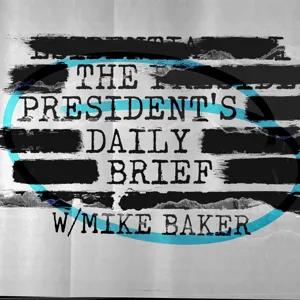The argument for humanoid AI robots with Brett Adcock from Figure

Explore "battery technology" with insightful episodes like "The argument for humanoid AI robots with Brett Adcock from Figure", "Supercharging Lithium-Ion Batteries with Gene Berdichevsky of Sila Nanotechnologies", "The many battles in the lithium and critical minerals revolution", "#2054 - Elon Musk" and "No More Charging Stops? We Take a Road Trip in an Ultralong-Range EV" from podcasts like ""No Priors: Artificial Intelligence | Machine Learning | Technology | Startups", "How I Built This with Guy Raz", "Marketplace Tech", "The Joe Rogan Experience" and "WSJ’s The Future of Everything"" and more!


Gene Berdichevsky and his team have been working for over a decade to solve a major problem: Lithium-ion batteries are not getting any better. They power our cell phones and laptops and nearly every other modern, rechargeable device—and at this point have reached their energy-storing limit.
This week on How I Built This Lab, Gene discusses a new approach that could eventually make lithium-ion batteries 40% more efficient, unlocking a future where electric vehicles and other battery-powered products are cheaper, recharge faster and last longer on a single charge.
This episode was researched and produced by Chris Maccini with music by Ramtin Arablouei.
It was edited by John Isabella. Our audio engineer was Neal Rauch.
You can follow HIBT on X & Instagram, and email us at hibt@id.wondery.com.
See Privacy Policy at https://art19.com/privacy and California Privacy Notice at https://art19.com/privacy#do-not-sell-my-info.

In 2021, the Biden administration put out a report about gaps in the supply chain for electric vehicles. It estimated global demand for lithium and graphite would grow by more than 4,000% by 2040 if the world were to achieve the climate goals laid out in the Paris accords. These materials, along with copper, nickel and others, are critical to green technologies. And there is a global fight over their supply, one that Reuters correspondent Ernest Scheyder documents in his new book, “The War Below: Lithium, Copper, and the Global Battle to Power Our Lives.” He told Marketplace’s Lily Jamali about why lithium, in particular, is in such high demand and the challenges of bringing it to market.

Elon Musk is a business magnate, designer, and engineer. His portfolio of businesses include Tesla, Inc., SpaceX, Neuralink, X, and many others.
https://twitter.com/elonmusk







Stay up to date
For any inquiries, please email us at hello@podcastworld.io